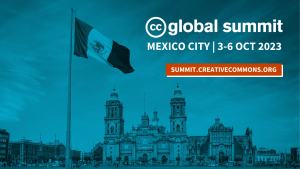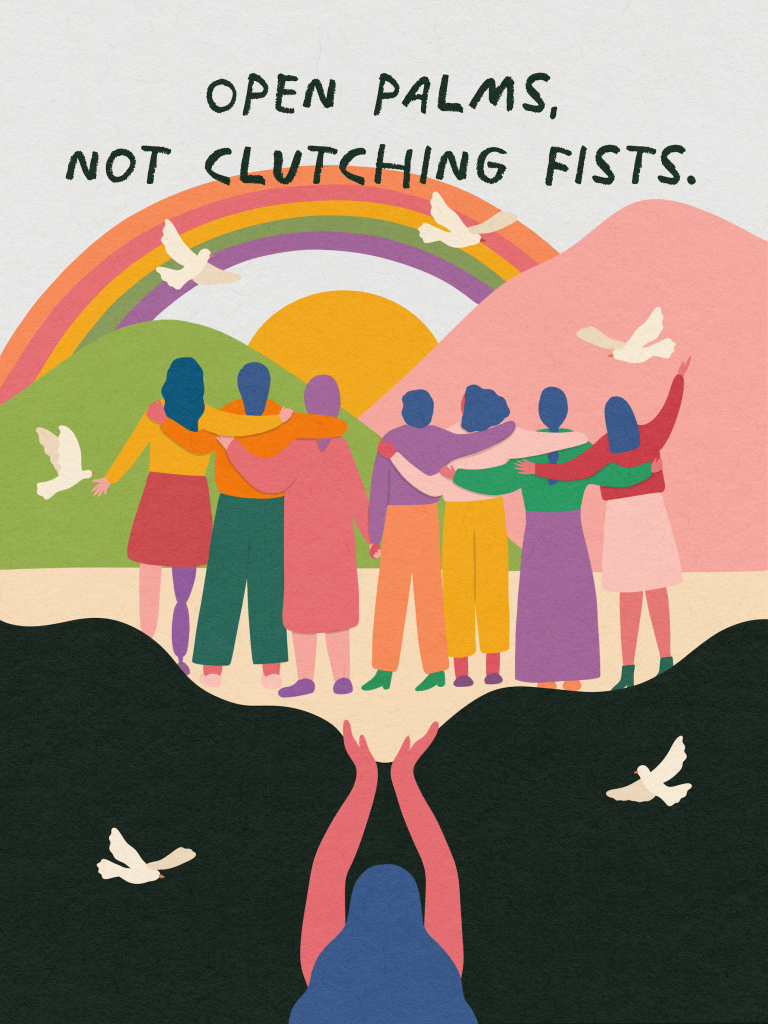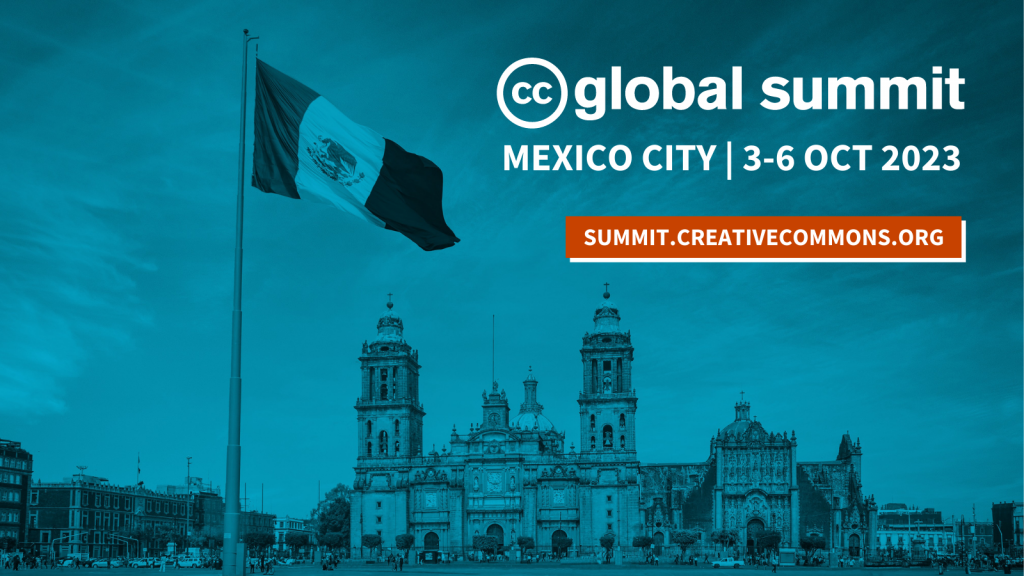Volunteer to Help Shape CC’s Global Summit in Mexico City
mercredi 1 février 2023 à 22:29[Lee esta entrada en español >]

You’ve heard the exciting news that the 2023 CC Global Summit will be in Mexico City? Now you have the opportunity to volunteer to join the committees that will help shape the program and evaluate applications for participant scholarships.
Volunteers are essential to ensure that the CC Summit reflects the rich diversity of people engaged in the open commons movement. Past CC Summit committee members report that volunteering is richly rewarding, energizing their engagement with the commons and expanding their connections in the CC community. We encourage you to get involved to make this Summit shine!
Volunteer for the Program Committee
The Program Committee is responsible for helping to shape the community-driven aspect of the CC Global Summit program. The committee will review responses to the Summit Call for Proposals (CFPs) and work collaboratively to invite those that best fit the Summit program theme, tracks, and schedule.
Application Deadline: 12 February 2023
Roles
- Committee Members (6-8)
- Time Commitment: Committee meetings below (approximately 5 hours) PLUS review period (approximately 5–8 hours depending on number of applications)
- Co-Chairs (2)
- CC Staff Member: Nate Angell
- CC Community Member: To be selected from community committee members
- Time Commitment: Same as other committee members PLUS two additional 1-hour preparation meetings with CC staff (likely in mid-February and early May)
Meetings & Key Dates (tentative)
| Date | Time | Activity |
|---|---|---|
| 22 February | To be arranged | MEETING: Welcome and program overview |
| 8 March | To be arranged | MEETING: CFP application form review |
| 16 March–20 April | Applications open | |
| 21 March | To be arranged | MEETING: Overview of review process and program structure |
| 21 April–2 May | Committee reviews applications | |
| 4 May | To be arranged | MEETING: Finalize accepted submissions |
| 8 May | Acceptance notifications sent | |
| 10 May | To be arranged | MEETING: Final meeting |
| 15 May | Acceptance confirmations due |
Volunteer for the Scholarship Evaluation Committee
CC funds dozens of people to attend the CC Global Summit to support diverse participation. This committee of volunteers is responsible for reviewing the applications for CC’s Global Summit Scholarship Fund.
Application Deadline: 12 February 2023
Roles
- Committee Members (~6)
- Time Commitment: Committee meetings below (approximately 4 hours) PLUS review period (approximately 6–8 hours depending on number of applications)
- Co-chairs (2)
- CC Staff Member: Mari Moreshed
- CC Community Member: To be selected from community committee members
Meetings & Key Dates (tentative)
| Date | Time | Activity |
|---|---|---|
| 23 February | To be arranged | MEETING: Welcome and overview |
| 9 March–12 April | Applications open | |
| 6 April | To be arranged | MEETING: Review process overview |
| 15–24 April | Committee reviews applications | |
| 27 April | To be arranged | MEETING: Finalize decisions |
| 2 May | Acceptance notifications sent | |
| 8 May | Acceptance confirmations due |
Need help?
For questions about committee application, please visit the Global Summit website or reach out to us at summit@creativecommons.org.
The post Volunteer to Help Shape CC’s Global Summit in Mexico City appeared first on Creative Commons.




 [
[